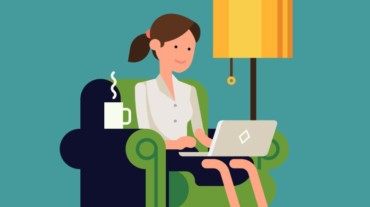
Apart from physically hampering people, coronavirus is also taking a toll on their mental health. Life has come to a standstill. You can’t go out, meet friends, and now you can’t even go to work.
All this is leading to panic amongst the people because frankly we no longer have the habit to stay at home.
Not just that but extremes cases have also been reported where a suspected novel coronavirus (COVID-19) patient admitted to the Safdarjung Hospital committed suicide by jumping from the hospital building.
According to the police, the deceased was a 35-year old man from Punjab with a travel history to Sydney. The man was admitted after he arrived at the IGI Airport on Wednesday around 9 p.m. after he complained of a headache.
The thing that we need to understand here is that this person was just a suspect but because he was so paranoid that he took this extreme step.
That’s why we have got you the top experts in our country that will help you deal with the mental pressure that you might be feeling today due to the coronavirus outbreak.
Also, watch:
Don’t panic, says Roma Kumar, senior consultant clinical psychologist, Max Hospital
Such incidents affect individuals and society on many levels, causing disruptions. While stigma and xenophobia may be seen as social aspects of the pandemic outbreak it may have a long-lasting impact on mental health at the individual level too, told IANS.
Kumar said: “There’s a fear or panic due to the current situation. We are all feeling uncertain about what could happen in the coming weeks, as we hope to slow the spread of this pandemic.
Select Topics of your interest and let us customize your feed.
PERSONALISE NOWKumar added:
Feelings of anxiety and uncertainty are completely normal during times like this.
Kumar said, “This is confusing and stressful for all of us and it can affect our mental health. Any rumors or speculation can fuel anxiety.”
She suggested that at such times where social distancing is required, people should try and keep in touch with their friends and family by telephone, email or social media.

“Involve your family and children in various indoor fun activities. We need to minimise the negative impact it has on our children and explain the facts to them.”
The doctor advised that people can create a new daily routine that prioritises looking after themselves. “Try reading more or watching movies, and exercise.”
She also suggested that people who are already suffering from mental illness should continue their treatment regimens. She advised people not to indulge in smoking and drinking.
“Consider developing a plan for telehealth sessions with your psychologist. You are worthy of trust, accomplishment, and love. Allow yourself to hear that,” she added.
Try exercising to beat boredom, says Arti Anand, consultant clinical psychologist at Sir Gangaram Hospital
“Anxiety, depression, stress, lack of confidence, state of confusion to name a few. People may suffer indecisiveness tendencies even if it all gets over. They will feel fearful, sad, angry and helpless. They will be scared of using public transport, contacting other people, walking on the road, even following their daily routine like going for work.
Also, watch:
“It is called post-traumatic panic attack and may result in social isolation and clinical depression. They will not be able to believe that the virus has gone, they will think that it is still there or may come back.”
The doctor also added that people in the quarantine may go through boredom, anxiety, anger, restlessness, and frustration.
“If the disease is transmitted in their family members through them, they may feel guilty. They can also develop suicidal tendencies.
“Many people might find it difficult to go to their jobs and face financial difficulties to add to their stress level.
“Most vulnerable are the old age people. The fear is instilled in their minds. They are not socialising for example they are not going for a walk in the park out of fear. This can result in stress and loneliness.”
Anand suggested some measures to remain unaffected from all these mental illnesses during this time.
She said:
In many countries, people are doing activities like meditation, following hobbies, reading and so on. These things can help negate the effect of isolation.
Bottom line is that it is better to take precautions and therefore not to go out and meet people – but of course, you can call a friend and talk. We have always been cribbing about not getting much time for ourselves. Maybe this is the time you can take care of yourself, especially when you are in social isolation – as it will keep you occupied and your mind sane.
With inputs from IANS